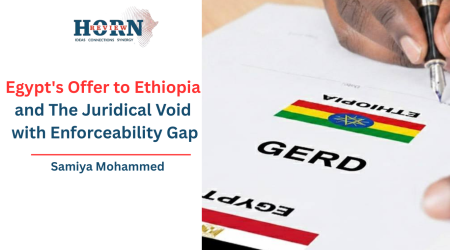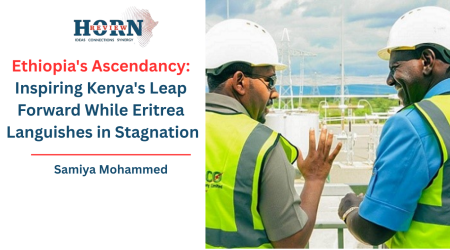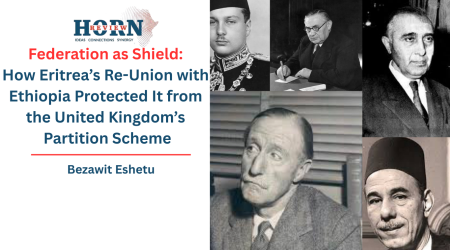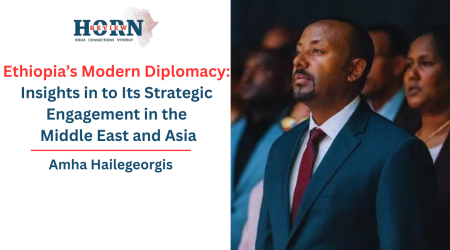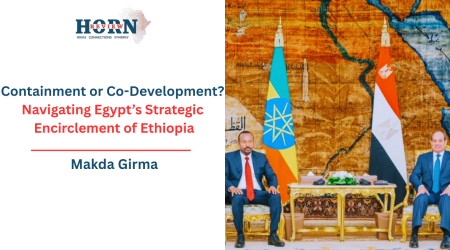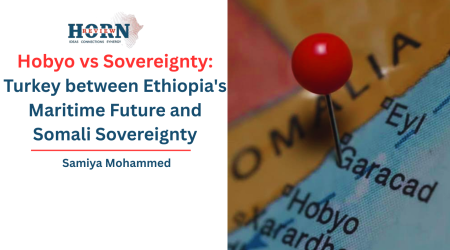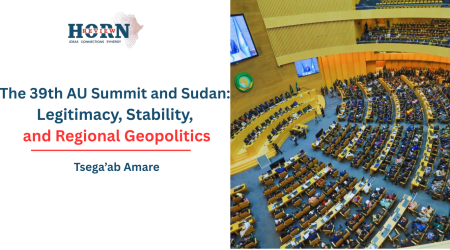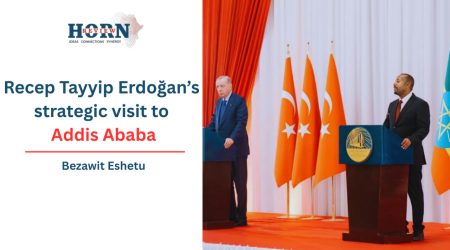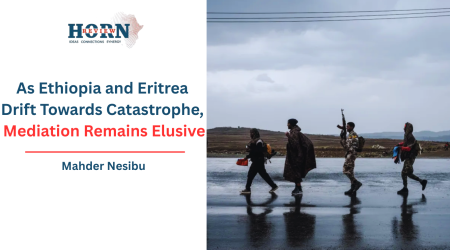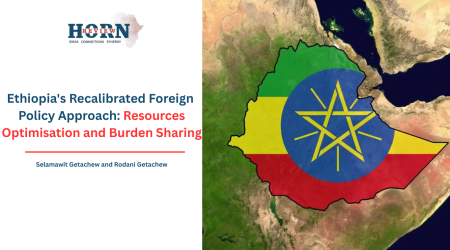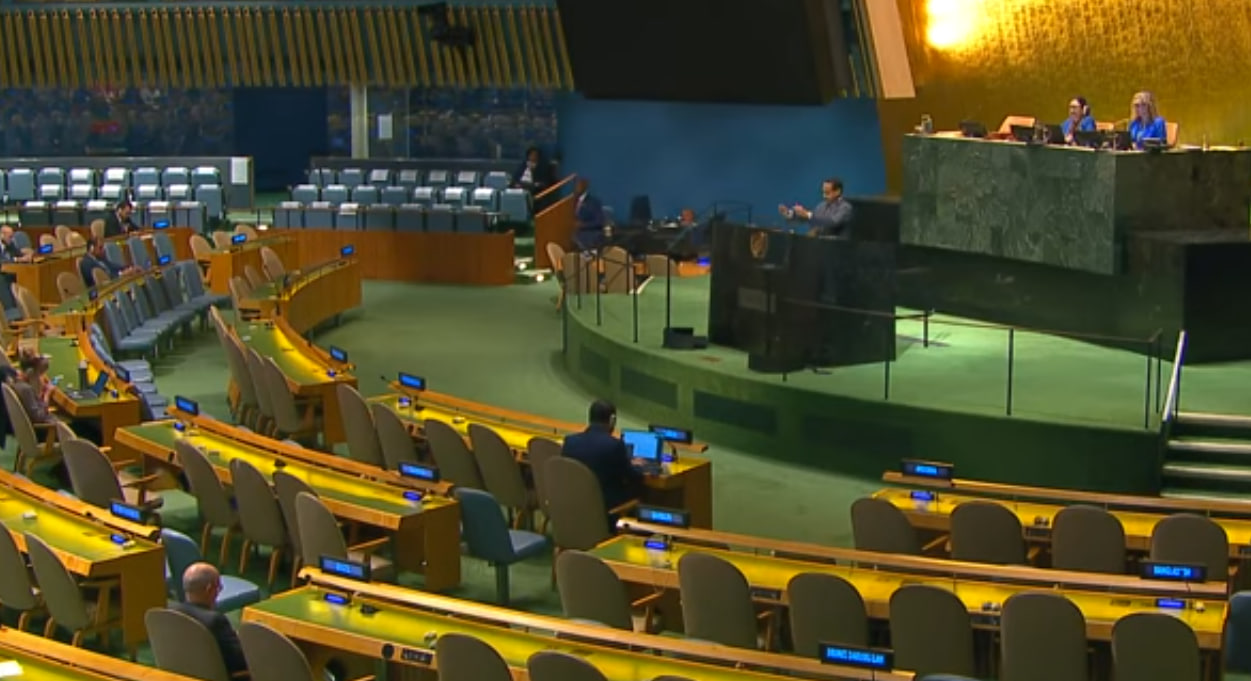
8
Sep
Ethiopia For UNSC Permanence: The Shelter Of Nations Claims Its Shield
In the halls of United Nations power, where five nations wield vetoes shaping global order, a conspicuous void persists Africa a home to 1.4 billion people, 54 nations, and 70% of Security Council agenda items remains permanently on the menu but never at the table. For Ethiopia, a civilization tracing back to the Axumite Empire a contemporary of Rome and Persia this exclusion is a geopolitical anomaly demanding correction. And this transcends prestige they anchor Ethiopia’s national survival, regional stability, and a reimagined multilateral order .
Ethiopia’s claim begins not in 1945, but millennia earlier. As scientists confirmed when unearthing Lucy the 3.2-million year old hominid in Ethiopia’s Awash Valley this land birthed humanity itself. Ethiopia stands apart as Africa’s oldest uncolonized nation, its victory at Adwa in 1896 against Italy shattering Europe’s myth of invincibility. When the UN was forged in San Francisco’s aftermath of World War II, Ethiopian diplomat Aklilu Habtewold signed the Charter, representing one of only four independent African states. This was no passive act Ethiopia leveraged sovereignty to champion decolonization, even training Nelson Mandela’s fighters and suing apartheid South Africa at the ICJ.
Ethiopia shows a living bridge between civilizational antiquity and diplomatic urgency. Its Ge’ez script, ancient coinage, and role sheltering early Muslims fleeing Mecca a unique identity. But history alone doesn’t secure Security Council seats. Ethiopia’s bid rests on three pillars institutional contribution, demographic heft, and cold eyed national interest.
While permanent members debate interventions from distant capitals, Ethiopia deploys boots on the ground. It is the world’s top troop contributor to UN peacekeeping, with over 6,300 soldiers serving from Korea to Darfur. This is strategic burden sharing. Chaos in neighbouring South Sudan, Somalia, or Eritrea spills directly into Ethiopia. When famine strikes or Al-Shabaab advances, Ethiopia absorbs the shocks first. A permanent seat would convert this frontline experience into actionable policy, shifting Council deliberations from abstract resolutions to ground-truth insights.
Ethiopia hosts the African Union’s headquarters, making Addis Ababa the continent’s diplomatic solar plexus. The OAU’s 1963 founding here reflected Ethiopia’s Pan-African leadership, later enshrined in the AU’s Sirte Declaration and Ezulwini Consensus Africa’s unified demand for two permanent Security Council seats with veto power. Ethiopia’s case is inseparable from this continental cry “Nothing about us without us”.
Ethiopia lost its coastline when Eritrea seceded in 1993, becoming the world’s most populous landlocked nation. Recent tensions over a port-access deal with Somaliland which Somalia decries as sovereignty violation highlight its vulnerability. As Council discussions on the crisis revealed, Ethiopia’s maritime needs clash with sacrosanct UN principles of territorial integrity. A permanent seat would grant leverage to negotiate solutions before they escalate, reframing Ethiopia not as a regional disruptor but a stakeholder in institutional stability.
Economically, Ethiopia faces illicit financial flows bleeding $203 billion yearly from Africa a hemorrhage enabled by global architectures it cannot shape. Climate-induced droughts, pandemics, and arms trafficking demand coordinated responses. without veto power, Ethiopia remains subject to decisions made by others. Consider the 2022 Ukraine grain deal Russia’s veto blocked Black Sea exports, spiking global food prices and starving Ethiopian families. Why should a nation feeding the world’s peacekeepers starve by distant fiat?
Any Security Council reform requires amending the UN Charter a process subject to veto by existing permanent members. China and Russia pay lip service to African inclusion but resist diluting their privilege. As former Ethiopian Ambassador Tekeda Alemu concedes, the Permanent Five’s “nearly insurmountable” opposition stems from “consideration of national interest” above equity.
Even within Africa, Ethiopia’s bid brings friction. The Ezulwini Consensus demands two permanent seats but leaves selection ambiguous. At a 2025 BRICS meeting, Egypt and Ethiopia blocked a declaration endorsing South Africa, exposing fissures over who speaks for Africa. The spat illustrated how deeply divided African states are,” noted an analysis, complicating Addis Ababa’s claim to continental consensus.
Prime Minister Abiy Ahmed’s 2019 Nobel Peace Prize for ending the Eritrean stalemate hints at diplomatic capacity. Hosting 750,000 refugees Africa’s second-largest cohort proves a commitment to shared security. These aren’t gestures but they’re proof of concept for a new multilateralism.
Ethiopia’s bid transcends moral appeal. It’s a wager that integrating the cradle of mankind into the Council’s core will produce smarter resolutions, fairer burden sharing, and durable peace. When Lucy’s bones of human origins, they also foreshadowed our interdependence. Ethiopia’s permanence wouldn’t weaken the Security Council it would ground it in the very soil where humanity began.
As UN Secretary-General Guterres declared in Addis Ababa while advocating for Africa’s seats”Building new multilateralism must start with action for peace.” For Ethiopia and for a world on fire that action starts with a seat at the table. The bones have waited 3.2 million years.
By Samiya Mohammed, Researcher, Horn Review
REFERENCES
- https://news.un.org/en/story/2022/05/1117882
- https://www.nobelprize.org/prizes/peace/2019/abiy/facts/
- https://reporting.unhcr.org/operational/operations/ethiopia
- https://population.un.org/wpp/
- https://www.crisisgroup.org/africa/horn-africa/ethiopia
- https://www.theafricareport.com/340017/brics-expansion-egypt-and-ethiopia-clash-over-south-africa/
- https://www.securitycouncilreport.org/un-security-council-working-methods/the-veto.php
- https://www.wfp.org/stories/ethiopia-hunger-crisis-what-you-need-know
- https://www.uneca.org/stories/us$88-6-billion-illegally-flow-out-africa-annually-uneca-report
- https://www.reuters.com/world/africa/somalia-rejects-ethiopia-somaliland-port-deal-mogadishu-2024-01-02/
- https://issafrica.org/research/papers/the-ezulwini-consensus-the-african-positions-on-un-reforms
- https://au.int/en/overview
- https://peacekeeping.un.org/en/troop-and-police-contributors
- https://www.sahistory.org.za/article/ethiopias-role-south-africas-liberation-struggle
- https://archives.un.org/content/charter-united-nations-1945
- https://en.unesco.org/memoryoftheworld/registry/613

